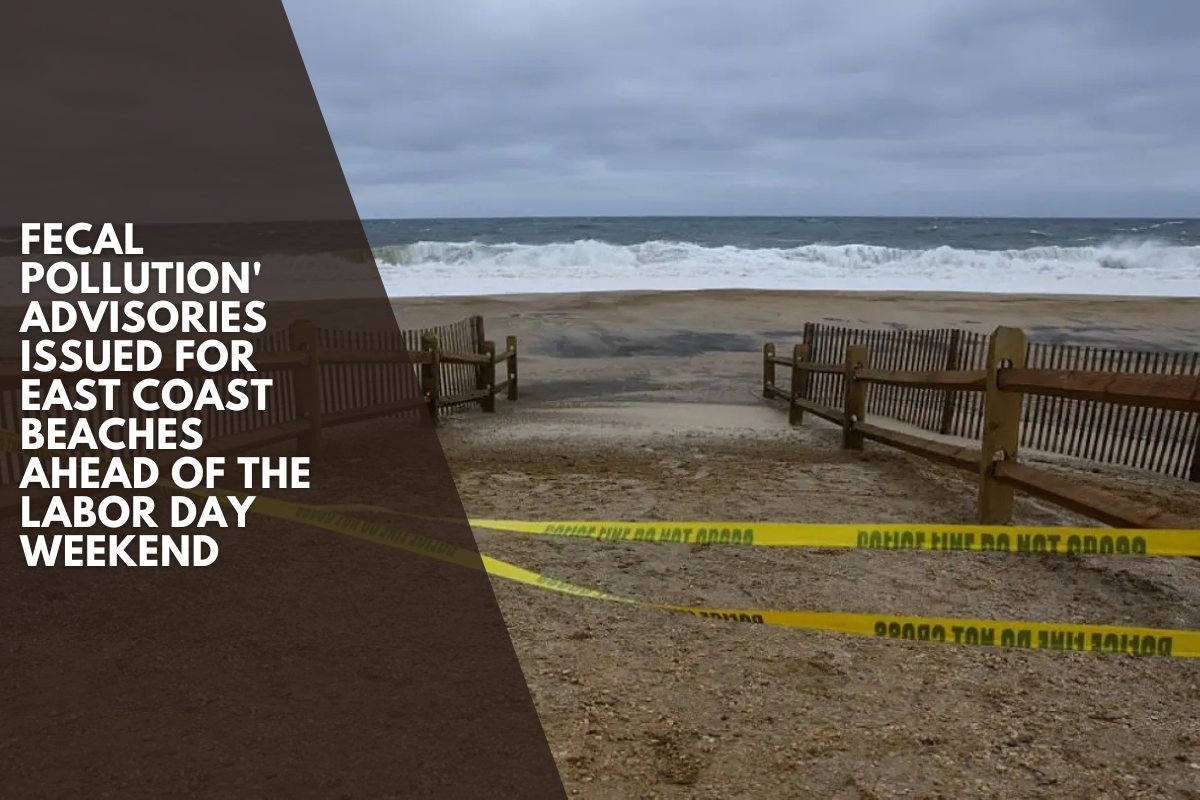This Labor Day weekend, vacationers along the East Coast are being warned about “fecal contamination” on their beaches.
Water quality warnings have been issued for coastal areas from Maine to Florida this week, with advisories stating that high levels of bacteria could cause nausea or rashes.
Some of the country’s most popular beaches have closed this week, including Keyes Memorial Beach in the Cape Cod village of Hyannis in Barnstable, Massachusetts, and Benjamin’s Beach on Long Island in Bay Shore, New York.
A report from Environment America evaluated beach safety by determining whether fecal bacteria levels exceeded US Environmental Protection Agency standards, triggering an alert to avoid the water. Fecal bacteria at those concentrations can cause illness in 32 out of every 1,000 swimmers.
Environment America’s clean water director and senior attorney, John Rumpler, blamed much of the contamination on aging sewer systems.
“These beaches are a treasure for families in New England and throughout the country. “They are a shared resource,” explained Rumpler. “We need to make the investment to make sure that literally our own human waste doesn’t wind up in the places where we are swimming.”
Nonetheless, many people intend to enjoy the ocean this weekend. Despite a two-day warning of elevated fecal indicator bacteria last month at Rehoboth Beach in Delaware, beachgoer Yaromyr Oryshkevych was unconcerned.
“I really don’t expect to be in any kind of danger of fecal contamination,” retired dentist Oryshkevych told the Associated Press.
He stated that he did not believe Rehoboth was close enough to significant pollution to be concerned, and that he expected the ocean’s natural currents to resolve any contamination issues in the area.
In late August, five beaches in North Carolina were under advisory due to elevated levels of fecal bacteria. The beaches are open, but swimmers should be aware that entering the water may be dangerous, according to Erin Bryan-Millush, environmental program supervisor with the North Carolina Department of Environmental Quality.
Bryan-Millush said heavy rain from storms like the recent Hurricane Erin exacerbated the issue in parts of the East Coast, noting that “storm drains carry everything” out onto coastal beaches.
“It could be really bad for someone who is immune compromised,” Bryan-Millush said.












